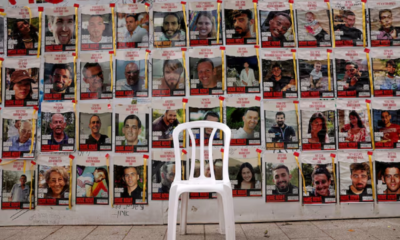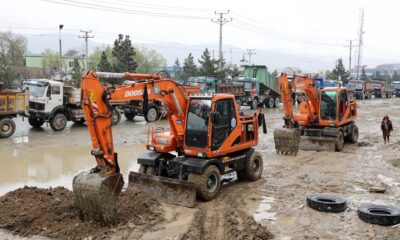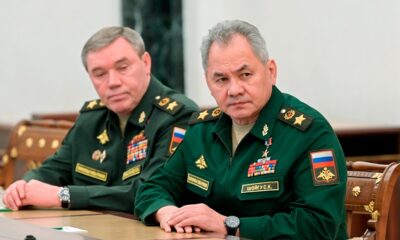Latest News
UN on a smear campaign against Afghanistan: IEA
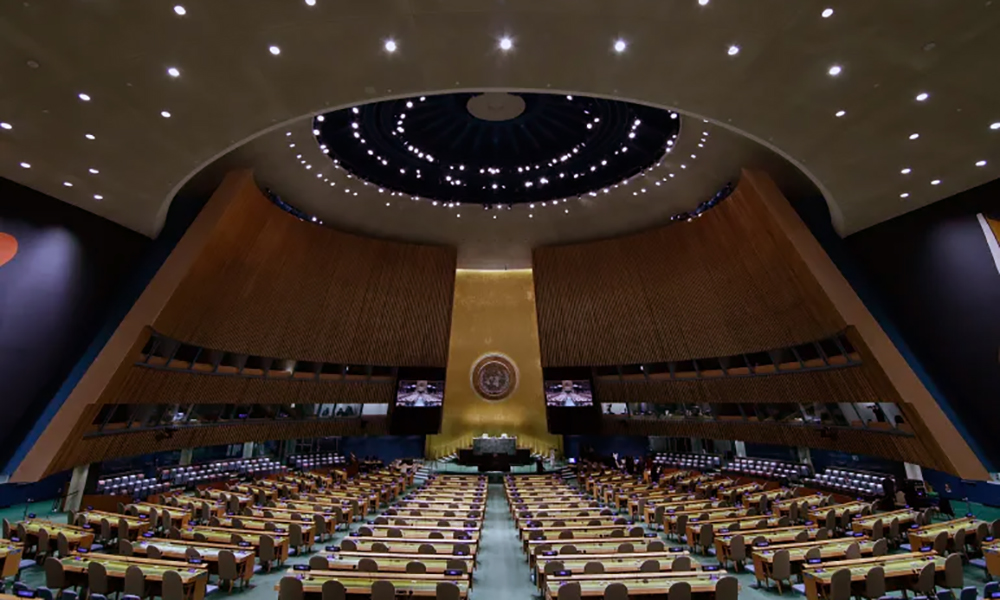
The Islamic Emirate of Afghanistan (IEA), in response to the recent report of the UN’s Security Council, says that a regular program of accusations is being carried out by the United Nations.
The United Nations Security Council recently said in a report that there are Al-Qaeda cells in Afghanistan or that some groups are active under the Islamic Emirate of Afghanistan.
The spokesman of the Islamic Emirate of Afghanistan said in a statement that the Islamic Emirate of Afghanistan strongly rejects these false accusations.
The announcement quoted Zabihullah Mujahid as saying: “Unfortunately, a systematic program of accusing the Islamic Emirate of Afghanistan has been started from the United Nations address, which they always propagate.”
Mujahid added that this is a misuse of the address of the United Nations, which, unfortunately, the member countries of this organization allow.
“We know that a number of member countries of the Security Council have faced defeat in Afghanistan, they naturally express their grudge and spread such rumors, but those member countries that have good relations with Afghanistan should not let the reputation of this international institution be damaged and its decisions revolve around the political goals of a few countries,” said Mujahid.
Mujahid emphasized that: “There is no one related to al-Qaeda in Afghanistan, nor does the Islamic Emirate allow anyone to use Afghan soil” against another country.
According to Mujahid, unfortunately, the reports of the Security Council originate from sources who stood by the occupation for twenty years and are sensitive to Afghanistan’s freedom, population and security.
Mujahid pointed out that it is expected that the United Nations Security Council should not allow its reports to be sacrificed for the purposes of political and economic profiteers and its dignity and credibility in Afghanistan will be questioned.
He also said that the main cause of the crisis twenty years ago was based on such baseless information.
This comes after the United Nations Security Council Sanctions Analysis and Monitoring Team said that relations between the Islamic Emirate and Al-Qaeda are still close and that this network has established eight new training camps in Afghanistan.
The United Nations Security Council Sanctions Analysis and Monitoring Team published its new report on Wednesday, and said that four al-Qaeda camps were located in Parwan, Ghazni, Laghman and Uruzgan provinces, and that this network has also created a weapons cache in Panjshir province.
Latest News
Three road construction projects launched in Kabul
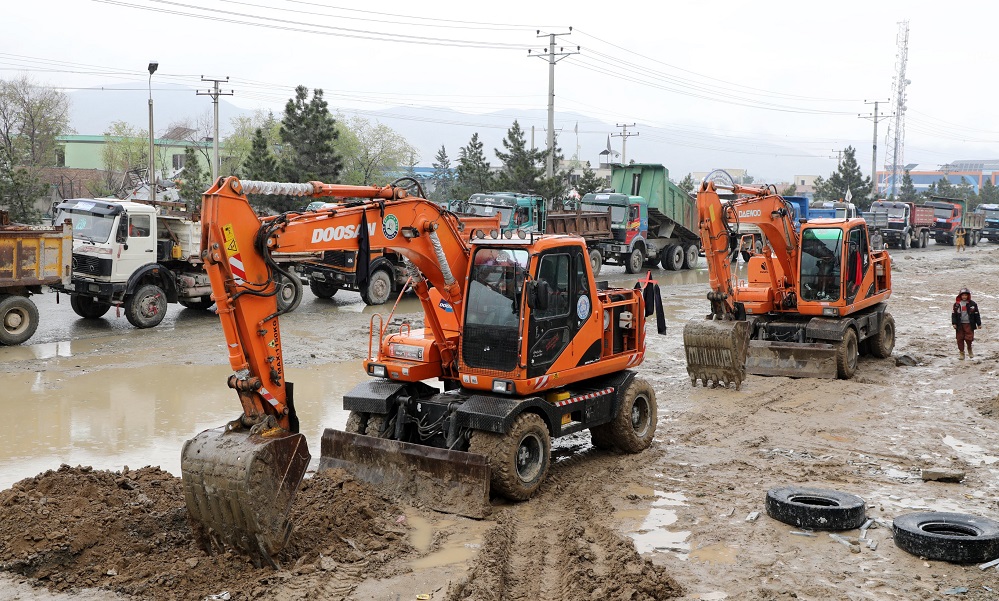
Three road construction projects worth about one billion Afghanis started in capital Kabul on Saturday.
The projects were inaugurated by Deputy Prime Minister for Economic Affairs Mullah Abdul Ghani Baradar.
The projects are: the second phase of Kotal Khairkhane road, the first part of the Shahid square to Qasaba, and the Airport road to Gumruk.
In the inauguration ceremony, Mullah Baradar said that Kabul municipality is working hard to beautify and regulate the city, and people should cooperate with the government in protecting public benefit projects.
He directed the officials of Kabul municipality to complete the mentioned projects on time and with good quality.
The second phase of Kotel Khairkhaneh road is 2.5 kilometers long and 60 meters wide. Thie road will cost 364 million Afghanis and will be completed in 20 months.
The Shahid square-Qasaba road is 1.8 kilometers long and 45 meters wide, which will be built at a cost of 175 million Afghanis in one year.
The Airport-Gumruk road is 2.7 km long and 60 meters wide, which will be completed at a cost of 407 million Afghanis in 20 months.
The projects are funded by Kabul Municipality.
Latest News
Russian defense minister says main threat for SCO countries emanates from Afghanistan
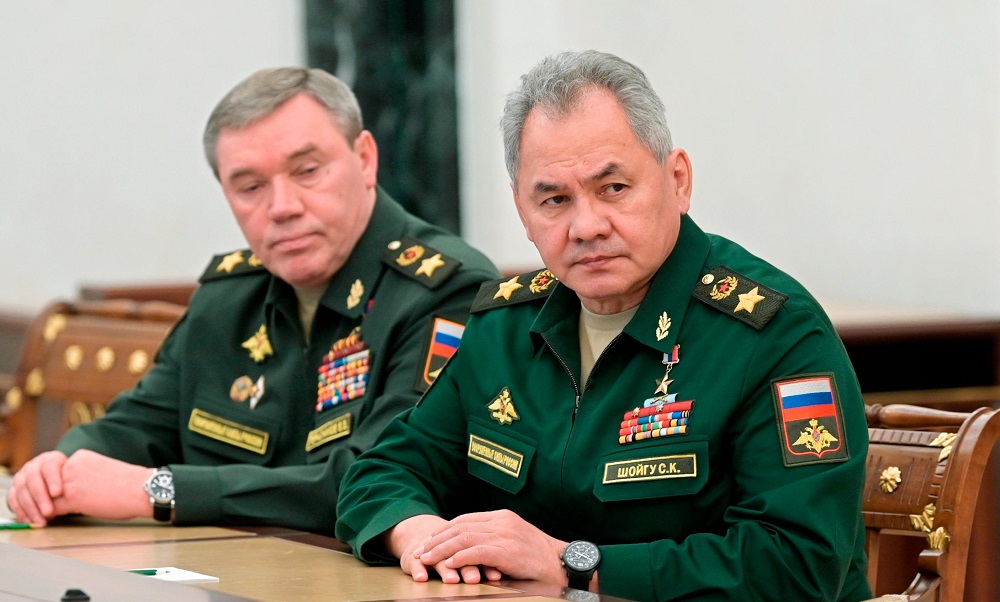
Russian Defense Minister Sergey Shoygu said on Friday that the main threat for the Shanghai Cooperation Organization (SCO) members emanates from Afghanistan where international terrorist groups find shelter due to unstable and indefinite political situation.
Speaking at a meeting of the SCO defense ministers in Kazakhstan’s capital Astana, Shoygu said Washington has stepped up efforts to restore its positions in Central and South Asia that were lost after the withdrawal of coalition troops from Afghanistan, Anadolu Agency reported.
The military chief called “unacceptable” the deployment of the American military infrastructure in the region, arguing that intentions should be regarded as “a direct threat to stability in the SCO space.”
According to him, the US is trying to impose a new security system in the Asia-Pacific region for dominance.
This comes as the Islamic Emirate has repeatedly emphasized that it does not allow anyone to pose threats to any other country from Afghanistan soil.
Recently, Mohammad Yaqub Mujahid, Acting Minister of National Defense Mohammad Yaqub Mujahid said that no destructive groups including Daesh have physical presence in Afghanistan,
Latest News
IEA calls Mujahideen Victory Day ‘freedom day’

In a statement on the occasion of the 32nd anniversary of the victory of the Mujahideen against the then communist government, the Islamic Emirate said that it is a day of freedom of the Afghan nation.
The Islamic Emirate described the coup by People’s Democratic Party of Afghanistan on 27th April 1978 as a dark day in history, as a result of which the people of Afghanistan suffered severe human and financial losses.
The statement said that the Afghan nation suffered huge casualties in their 14-year struggle against the thoughts and actions of the communists, as 1.5 million people died and millions more faced various hardships.
“After 20 years of Jihad, our country was freed from another occupation and the Islamic system was established, so the Islamic Emirate will make its utmost efforts so that the fruits of decades of sacrifice and struggle of this nation are not wasted,” the statement said.
“It was the wish of the martyrs to fully implement the Islamic system in the country, and therefore, the Islamic Emirate is trying to facilitate development and prosperity under the shadow of the Islamic system in order to realize the goals of the Afghan people’s jihads,” it added.
-

 Latest News4 days ago
Latest News4 days agoRashid Khan named AWCC’s brand ambassador
-

 World4 days ago
World4 days agoMalaysian navy helicopters collide in mid-air, 10 killed
-

 Sport4 days ago
Sport4 days agoJaiswal ton powers Rajasthan to big IPL win
-

 World4 days ago
World4 days agoNorth Korea officials visit Iran in a rare public trip
-

 Latest News5 days ago
Latest News5 days agoAt least 1,500 families affected by recent floods: IRW
-

 Sport5 days ago
Sport5 days agoMawj Sahil player scores stunning halfway line goal in 1-0 win over Jawanan Wahedi
-

 Sport3 days ago
Sport3 days ago‘Serious talent’ Fraser-McGurk bonds with Warner to light up IPL
-

 Latest News4 days ago
Latest News4 days agoUS report cites ‘significant deterioration’ in Afghan women’s rights last year




